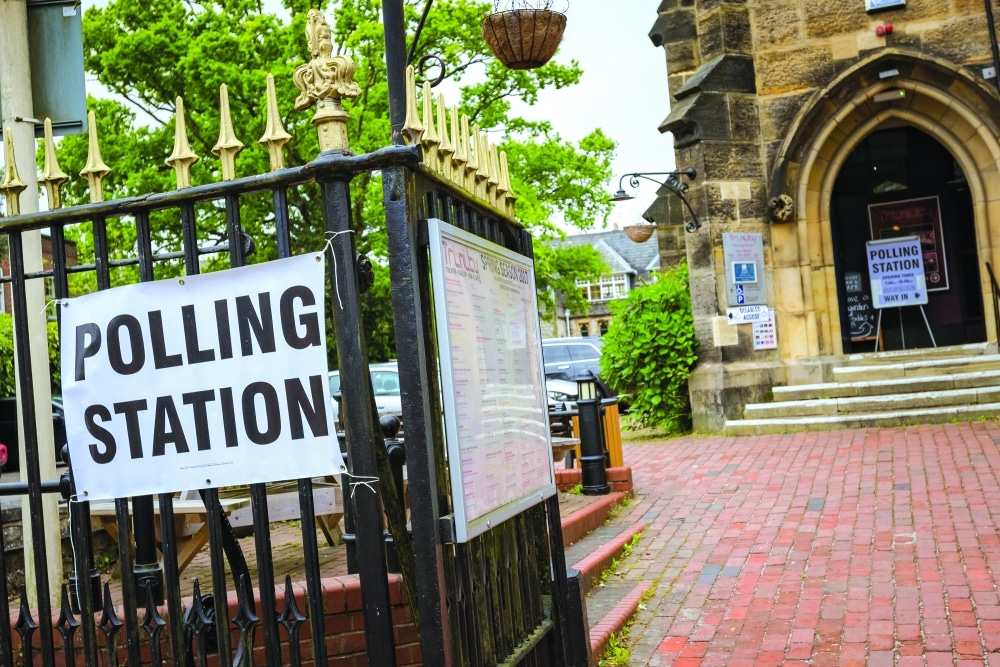THE Council in Tunbridge Wells is set to vote tonight (Wednesday) on changing its ‘archaic’ and ‘anachronistic’ voting system that could save taxpayers more than £200,000 in costs every four years.
Currently, elections are held at Tunbridge Wells Borough Council (TWBC) every three years out of four, with a third of councillors elected in each ballot.
TWBC is the only council in Kent to hold elections this way, with all other authorities having ‘all-out’ elections every four years.
The move to change the voting system in Tunbridge Wells has been prompted by changes planned by the Local Government Boundary Commission for England (LGBCE).
The Government body, which is already planning to cut councillor numbers from 48 to 39 from 2024, has proposed merging some rural wards due to ‘electoral fairness’.
The LGBCE has argued that currently some wards only have one councillor and the electorate in those wards only gets to vote once every three years, while other voters get to choose a representative every year for three years out of four.
The proposals by the LGBCE have alarmed a number of councillors, especially in rural parishes, who have found that their wards are set to be merged.
However, the LGBCE has paused its review of the boundary changes to allow councillors at TWBC to consider changing the voting system, which would enable some of the existing ward boundaries to remain the same.
A motion to change the election system has now been put forward by Benenden & Cranbrook councillor and former leader of TWBC, Tom Dawlings (Conservative) who has argued that the current system is ‘archaic’, ‘anachronistic’ and ‘expensive’.
He says that the changes being put forward by the LGBCE are only due to the current electoral cycle and will see parishes such as Cranbrook, Sissinghurst & Frittenden merged together, Hawkhurst merged with Benenden & South Goudhurst, while Rusthall & Speldhurst will also be merged.
He told the Times: “The changes by the LGBCE are only coming about because of the way we elect councillors here. If we agree to all-out elections every four years, there won’t be any need to slash the number of wards.”
He continued: “It is also a much more expensive way to elect councillors. It costs around £130,000 to hold a local election and we are doing it three times every four years when other authorities are doing it just once.”
He says changing the electoral system would save taxpayers in Tunbridge Wells in excess of £200,000 each year.
He said the motion to change the election system, which will need a two-thirds majority in the Town Hall to pass (32 votes out of 48 councillors), is not a Conservative motion but has the backing from other party members, especially those in wards likely to be impacted by the LGCBE’s intention to change the boundaries.
Cllr David Knight, who represents Goudhurst & Lamberhurst for the Alliance, said keeping the election system as it is ‘will probably result in Goudhurst Parish being split up, with Kilndown being added to Hawkhurst, and Goudhurst added to a vast, five-parish ward all the way to Matfield’.
He added that the change to ‘all-out elections’ would enable smaller wards and make councillors more ‘accountable’.
“Wards could be much smaller according to geography and parish, with councillors known and accountable to their community, not just by party affiliation, and it should avoid the need for three-member, large rural wards,” Mr Knight said.
“There would also be a cost saving of approximately £260,000 over the four years as an election costs.
“When TWBC is running a forecast deficit in 2022-23 of £900,000, increasing to £1.8million for 23-24, elections every year are just not affordable,” he continued, adding that ‘all-out elections’ would also lead to a ‘more stable’ council and would be ‘more easily understood by everyone’.
Meanwhile, Dianne Hill, a Borough Councillor and the Mayor of Southborough said all out elections were backed by the Town Council.
She said: “We need to keep Southborough and High Brooms together and the only way to do this is by all-out elections. As I’ve said previously, to take High Brooms School out of High Brooms makes no sense.”
She added that all-out elections were also backed by 64 per cent of residents across Tunbridge Wells.
But proponents of the current system have argued voting by thirds is ‘democracy in action’.
Cllr Hugo Pound, the Labour Leader at TWBC told the Times: “I remain in favour of electing one-third of our Councillors every year because, in a fast-moving world and a rapidly-changing Borough, I believe that voters deserve the chance to state their preference every year.
“If every Councillor had been elected for a four-year term in 2018, we would now have a half-built new theatre, a debt of about £120million, no plan for a cleaner Borough, no impetus to build new social and affordable housing and absolutely no effort to address our increasing deficit.
“In 2018, there were 41 Conservative Councillors. Now there are 13. That is democracy in action.”
The debate and vote takes place at an extraordinary council meeting at 6.30pm tonight (Wednesday December 14).








